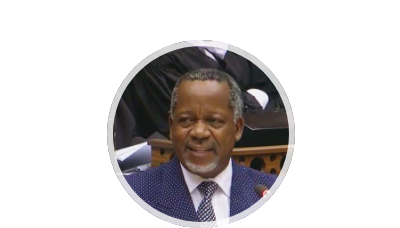House Chair,
The ACDP appreciates that the bill before the House is a vast improvement on the leaked Cabinet Bill and seeks to undo the worst conduct during the Zuma years when intelligence services were abused to protect one man, former President Zuma, rather than the country.
It proposes revised intelligence services based on the recommendations of the Presidential High Level Review Panel Report, the White Paper on Intelligence and international benchmark studies. It also responds to various court challenges, court rulings such as the February 2021 Constitutional Court ruling on “bulk and targeted interception”, and it deals with issues of the Zondo Commission. These issues the ACDP supports.
Now, as was alluded to, churches and other faith-based organisations were outraged that they and, in fact, all NGOs, would have to undergo some sort of security vetting as contained in the leaked Cabinet Bill. This resulted in thousands of submissions being made to the Ad hoc Committee from churches and other faith-based organisations who were concerned that they would have to be subject to vetting.
Where did this ludicrous and unconstitutional clause come from and how could it ever be implemented given the backlog that the genuine vetting of public officials has at the moment?
These objections resulted in these contentious clauses being removed and this illustrates how churches and faith-based organisations can flex their muscles and have their voices heard to change legislation.
However, churches were now very vigilant, as were any other NGOs about any possible overreach of the state and by the state and possible state-regulation of religion. Thus, while the bill has been substantially improved, organisations such as FORSA, that enjoys support spanning various groups and denominations, and millions of South Africans were still concerned that key definitions such as “persons or institutions of national security interest”, definitions of the threat of national security and national security in general when read with section 198 of the Constitution are still over-broad and that religious organisations who are engaged in lawful political activities, advocacy, protest or dissent, may still be caught in the wide dragnet of the bill, despite actually not being any threat to national security.
These organisations suggested narrower definitions which were, regrettably, not accepted. And, whilst we appreciate the substantial and significant amendments to the bill, had these definitions been accepted, these concerns would have been addressed.
I thank you.





